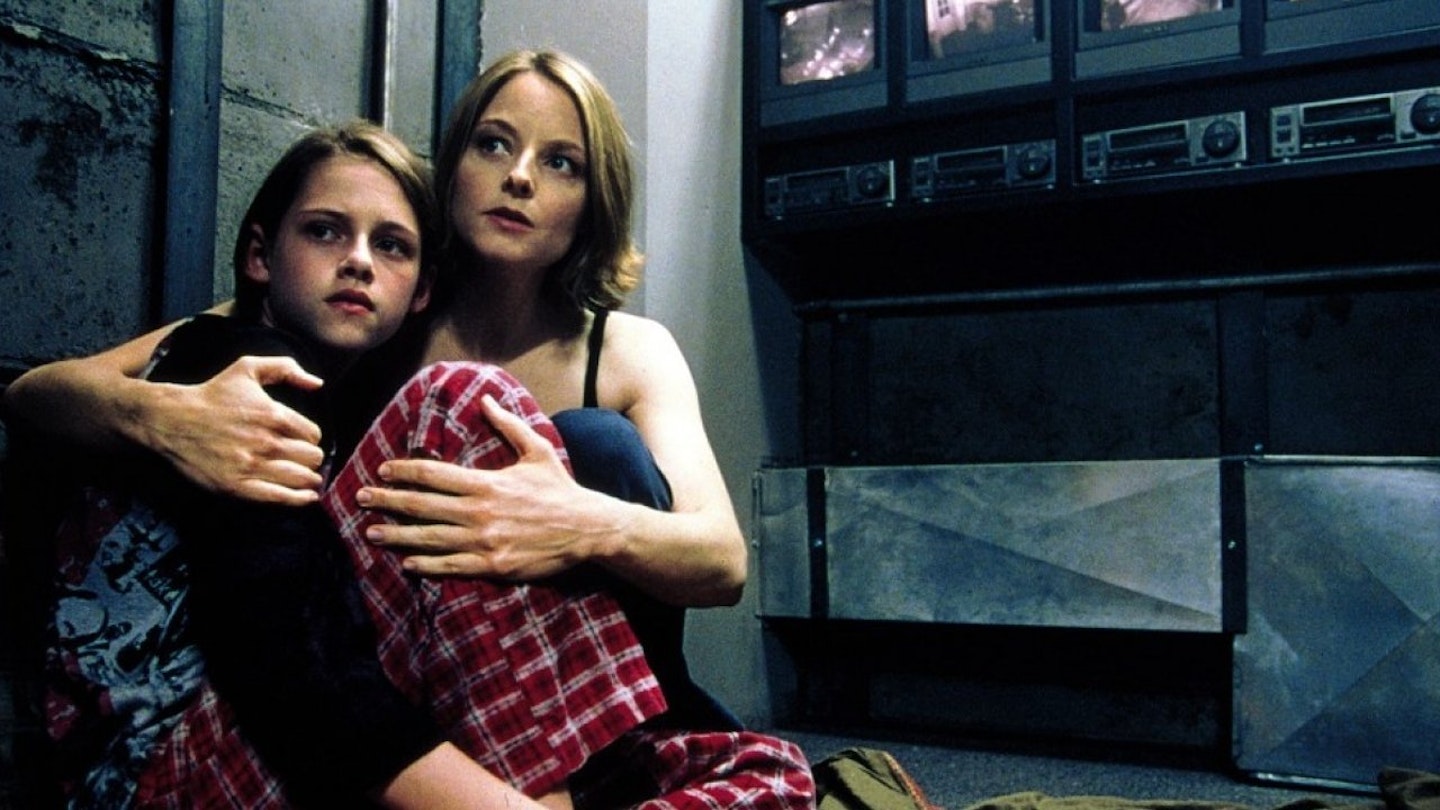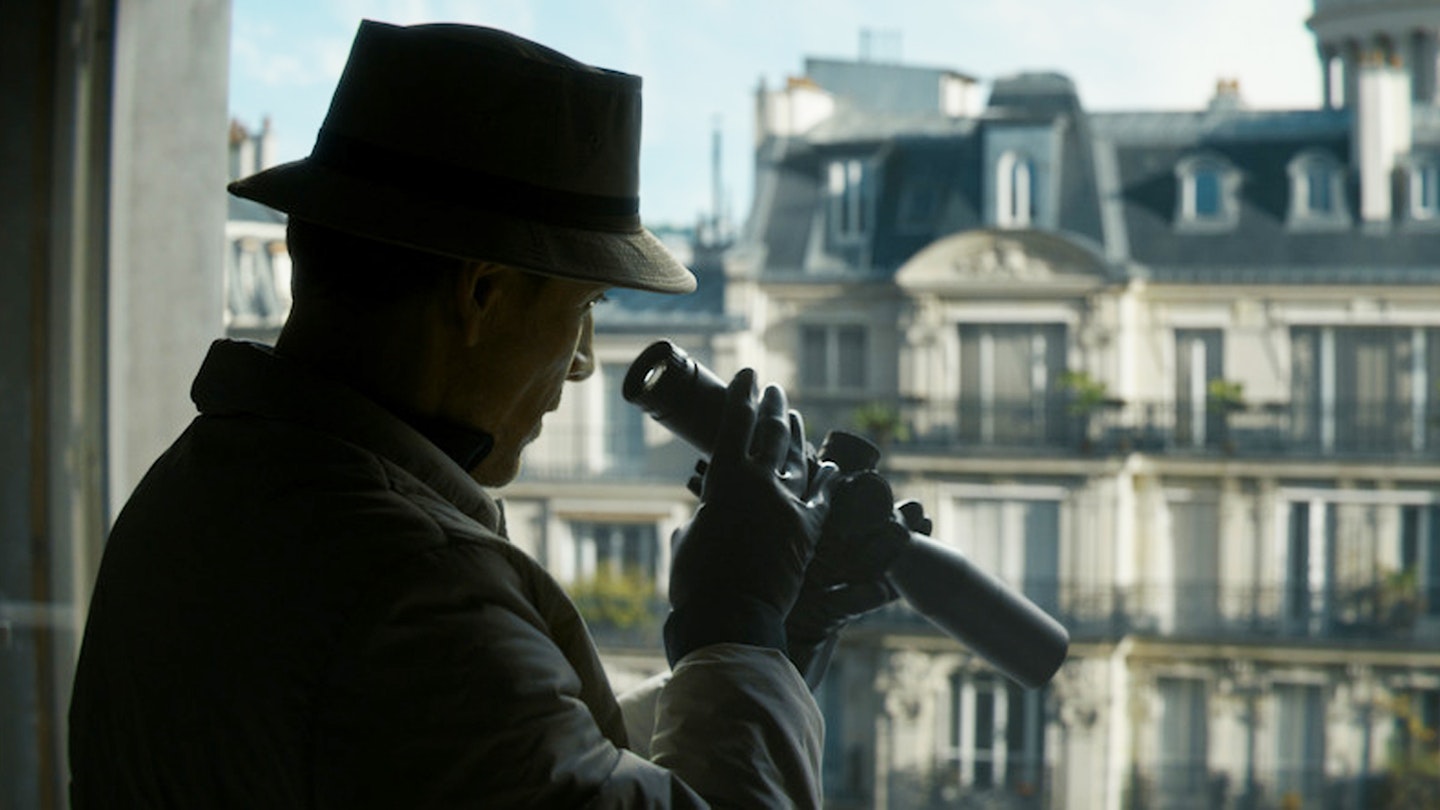We all know by now to expect certain levels of stylishness from a David Fincher film, even when the movie's actual substance is a letdown. Style is evident right from **Panic Room'**s superb opening credits, which are laid out like signs and billboards across the rooftops of New York. This time around, however, he delivers something beyond mere superficial frills. Panic Room may be nowhere near as terrifying as Seven or have the impact of Fight Club - but with its uncomplicated premise, claustrophobic setting and fast-paced action (which kicks in almost from the start and never lets up), it still makes for one heck of a cinematic roller coaster. It also marks a welcome return to the screen for Foster - stepping in at the last minute for an injured Nicole Kidman - as the beleaguered single mom attempting to start a new life away from her estranged hubby (Patrick Bauchau).
Fincher sets the scene - mother and daughter view property, are introduced to concept of titular emergency bunker, move in, assess new station in life - within the first 15 minutes. He then confines the remainder of the action to the house itself, as a trio of bickering intruders break into the place and the women rapidly retreat to the panic room as their unwelcome visitors go in search of a hidden fortune. The ensuing cat-and-mouse game not only works because of Fincher's ability to ratchet up tension - the protracted build-up to Foster's discovery of the burglars is true edge-of-the-seat stuff - but because a streak of black humour in David Koepp's screenplay saves the film from ever becoming too intense. Witness Foster's attempts to communicate with the outside world via the soundproofed room, to a moment with a flame-thrower that might have come straight from the pages of a Home Alone script.
Amazingly, there are even shades of Macaulay Culkin's finest hour here - to say nothing of the odd casual Joe Pesci reference - as Foster and Kristen Stewart resort to increasingly desperate methods to rid themselves of their interlopers. By using the house to its fullest effect, Fincher is also able to turn it into as much of an enemy as the film's human villains. He adds to the suspenseful atmosphere with extreme close-ups, bizarre camera angles and a tendency to move uneasily from one floor of the house to another, rather like the occupants. Ultimately, though, the film truly stands out thanks to Foster's protagonist - a strong, independent and, above all, resourceful woman who takes matters into her own hands and belies any of the damsel-in-distress stereotypes that this material might have given rise to in the hands of a less capable filmmaker. Nor, however, is she some pumped-up action woman, rather a believable character struggling to cope with the extraordinary situation she has found herself in.
Foster, of course, is terrific, but more importantly, her presence is likely to open up Fincher's work to the kind of wider female audience who may have found his previous films too violent or male-dominated for their liking. And, in a film industry where such roles are still few and far between, that’s something to be applauded.


